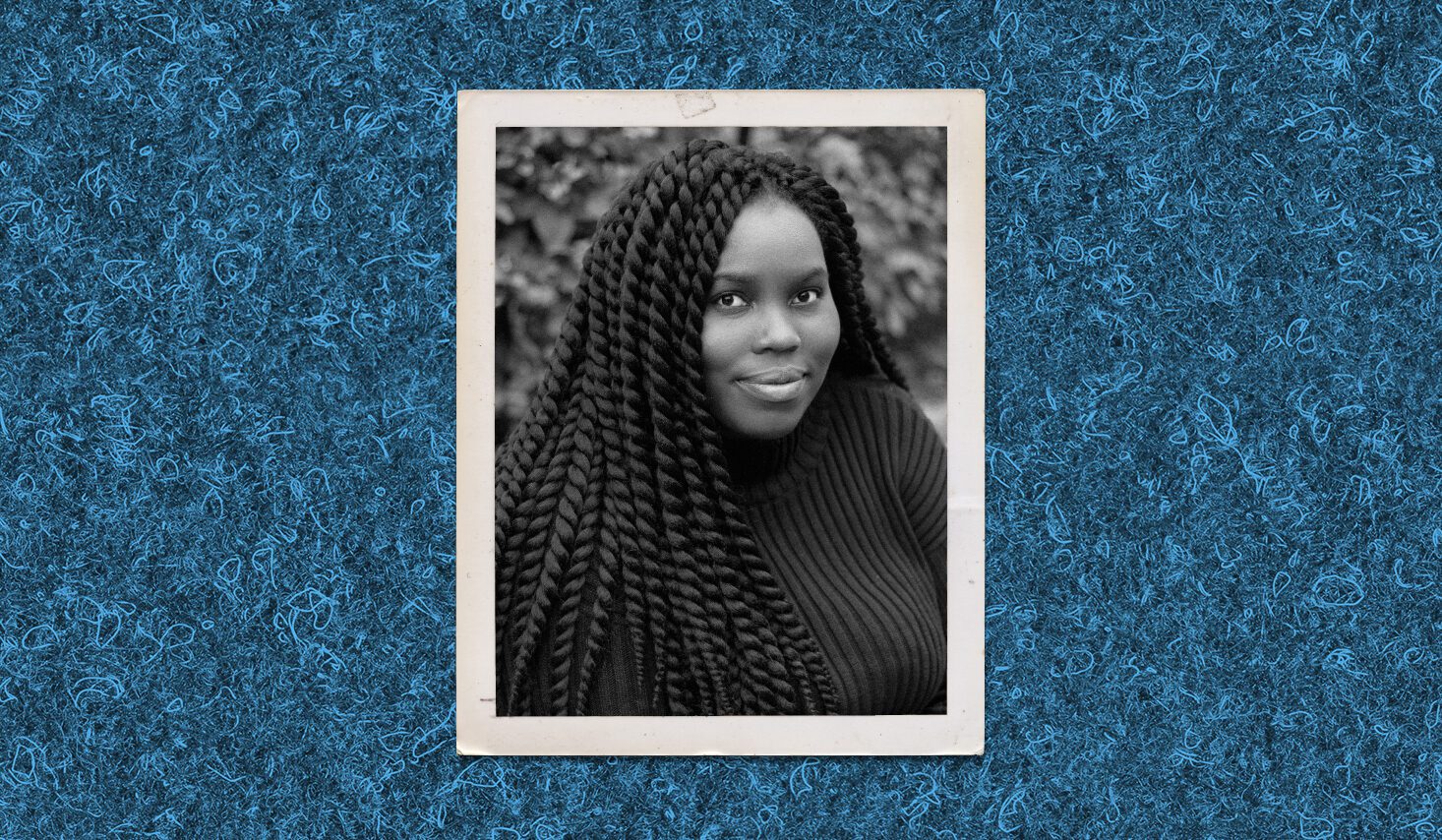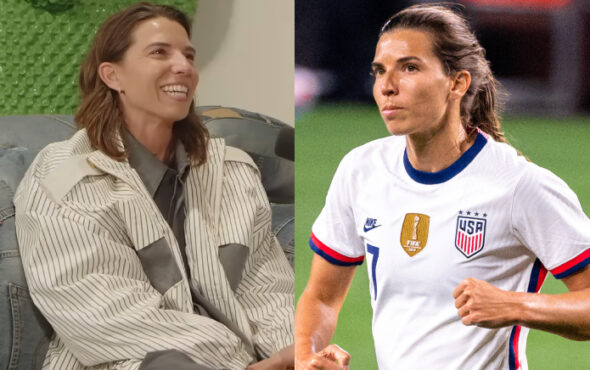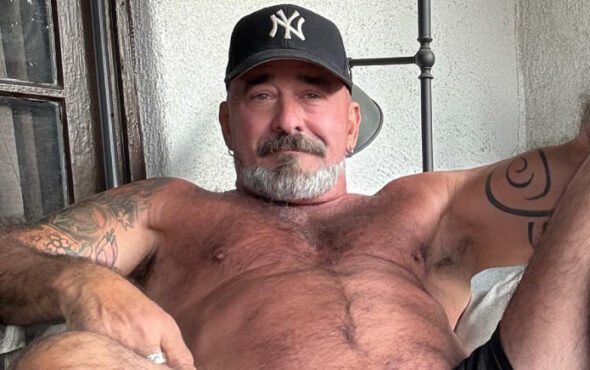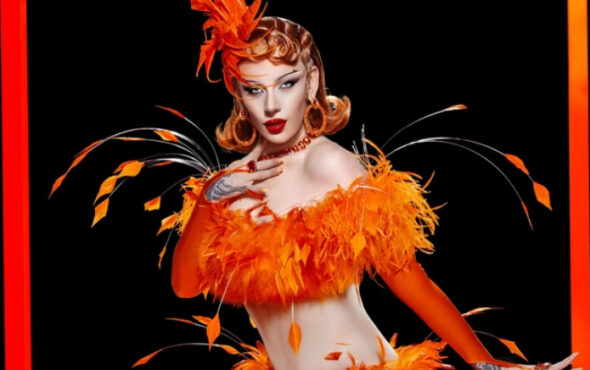
Faridah Àbíké-Íyímídé is the queer Black author taking the reading world by storm. The young writer has landed a million-dollar book deal in the States for her debut thriller Ace of Spades. Born in London, Àbíké-Íyímídé sought out reading as an escape at a young age. Now, the university student has released one of this year’s most highly anticipated dark queer academia novels which follows gifted musician Devon and popular head girl Chiamaka down a path of mystery, rumours and racism. Arriving in June, we sat down with the breakthrough writer to hear more about how her explosive debut book came together.
When did you realise you wanted to become a writer?
I’ve always loved storytelling. My mum would read books to me and specifically recite folklore from Nigerian myths and legends. I always wanted to be able to tell stories myself, because I really loved the way I felt when I had stories. In year five, I wrote a witch story which encouraged me to continue writing, and I have been writing ever since. There’s a pressure to do something that’s more practical so I kept on thinking of trying something that feels a little bit more practical, so I was like let me try and see if I can seriously write a book during the four years I’m at university and see if it takes off.
Can you name some of your favourite authors?
I was really obsessed with an author called David Levithan. He’s a huge queer author and he revolutionised queer books for young adults. I was obsessed with him. I read almost all of his books. I love Malorie Blackman and love Stephen Chbosky, the author of The Perks of Being a Wallflower.
How did your friends and family react to your incredible book deal?
It’s very weird because I’ve had my book deal for a while. I got my UK book deal in 2018 when I was in my second year of university and I didn’t tell people so no one knew about it. When I got my US book deal, which was significantly more publicised, suddenly everyone knew and I hadn’t told them before. They didn’t know I was writing anything! They were really shocked and had no idea.
You’re currently studying at a university in Scotland. How did that environment inspire your creative process?
My university inspired the idea of how many barriers there are in education. A lot of people I met were not working class. I didn’t realize how many working-class people don’t make it through university. It also inspired the weird nature of people staring and things feeling a bit off all the time, and that’s kind of like how microaggressions feel. I also found inspiration from settings that I saw in TV shows like Gossip Girl and Pretty Little Liars.
Black LGBTQ+ representation is so vital and your book is a great example of diverse inclusivity. Did you always plan to have queer main characters?
I always knew that Devon would be queer, because the specific type of character I was trying to create with him was a boy that’s from, in American terms, ‘the hood’. I was thinking about the boys I knew growing up who are from working-class backgrounds, and there are so many layers to them. They are often wearing a costume constantly and code-switching in so many different ways. Being a queer Black boy in a white space and then coming home and still not taking off the costume. There are so many layers of pain and secrecy that would cause emotional turmoil. With Chiamaka, I was basing her partly on Blair Waldorf and a lot of girls I knew growing up who were fashionable mean girls. I went to an all-girls school in South London and my school was very, very queer. It was a really nice environment. It was an environment of openness – all my friends are queer for example. So, I feel like it was natural that she was queer and was experiencing her coming of age in that way. I’m really really passionate about centring people that have not been in these type of stories before and I think a lot of queer POC get left out of a lot of coming of age stories in young adult writing, so I really want to centre queer POC in all my stories.
How did you approach each of your characters differently?
I didn’t make any white character completely likeable. There’s no one white character that readers can attach themselves to as a good person. When it comes to talking about racism, I think people often try looking for a way out of being included in the heavily loaded term of being racist. I think that they want to distance themselves away from it rather than understanding that fundamentally they’re being conditioned. Everyone is affected by racism. White people don’t experience racism but they’re affected in the sense that they have been conditioned to believe that people of colour are not as valuable, so I think the book almost challenges them to have to deal with things that they usually avoid.
Why do you think it’s important to have accessible QPOC books for ethnic minorities?
Growing up, I had so many friends that couldn’t read queer books because they would get in a lot of trouble with their parents, or there wasn’t queer fiction for them to read. I was talking to an author that grew up during Section 28 and he said a teacher gave him a queer book and it changed his life. I keep on thinking we’re no longer in that world created by Thatcher, but it’s still seen as taboo, and a lot of kids are not allowed to read queer literature. I think I realised the impact when I got a review saying ‘I had no idea your book was so gay’. On one hand, I wish it was more obvious as it’s marketed as a thriller first and foremost. Readers can take it home and have some comfort without being worried or someone expecting anything, especially if they’re a younger reader who’s not out of the closet or still thinking about their sexuality. It’s just so important because when you don’t have an identity represented in a story, you’re suggesting those people don’t matter and it’s so important to show queer kids of colour that they do matter, that they do have valuable lives and deserve to be represented in stories.
What was your favourite part of writing Ace of Spades?
Two parts that were exciting for me to read and build was when the main characters find out who’s behind everything. Glenn knew from the beginning what was going to happen and that was what motivated me to write because, if I could pull it off, it would be such a cool thing to show and have a huge implication if people understand what it means. Also, the ending, where there’s a ball, I really enjoyed writing that because you see the two characters come together. Ultimately, I think that’s how we can defeat white supremacy, we all have to come together. I really loved writing that interaction, despite them being very different people. Devon and Chiamaka’s friendship was really fun for me.
What did you find yourself creatively challenged by most?
Making Chiamaka an understandable character. Mean girls are often portrayed as very one dimensional, but I think a lot of them are really layered and there’s more going on than is usually presented. Often they either come across as simple and not real. I wanted to be clear that while Chiamaka is a mean girl, being a Black girl growing up in a very anti-Black society can create a really deep sense of self-hatred, so you build up walls and you’ll either retreat into yourself, or you become very mean and lash out trying to take back that power. I think that was really hard for me, because I know that not everybody will understand paths. Nobody understands what it’s like to be a Black or Brown person in a white space and to be constantly being told that you’re not going to be good enough because of your skin colour or because of your gender.
What do you hope your readers can take away from Ace of Spades?
With white readers, I hope they reflect on their actions and on what systems are in place. I tried to kind of break institutional racism down in a way that was accessible so that people could see the different ways it works. It manifests in so many ways and I wanted to show it through a white character who was working class. I’m hopeful white readers think deeper about the world and the systems that they benefit from.
For Black readers, I wanted to end the book on a positive note. While racism can’t be solved overnight, I wanted to give it a happy ending for the two Black students, because there’s a lot of depressing things that happen to people of colour because of racism. You can still have a happy ending in your life and it doesn’t have to be packed with trauma and pain. It’s already a very heavy book and I wanted to make sure that was a significant last image. I wanted to make sure that Black queer kids were being centred so the publishing world could see that there could be a story that centres around queer people of colour.
How do you hope LGBTQ+ stories for people of colour continue to evolve?
We’re in an age where there are so many people of colour who are writing stories that are not just about one thing. It’s so important to have stories about how trauma has shaped generations and how it’s still affecting us today. I’m a person that loves dark stories, but, at the same time, it’s powerful to tell stories of joy. People often conflate sadness or darkness with trauma. Sometimes it’s also powerful to be able to tell a story that is darker, but it has so many layers to it, and I think that’s what Ace of Spades is. I wanted to make it something that was dark and had light moments too.
Why did you pick horror as a genre for Ace of Spades?
It’s reclaiming horror for Black people. I remember when Get Out came out and a lot of people were saying it wasn’t a real horror and were trivializing what Jordan Peele was doing. I think that that happens when people label my book as fantasy as opposed to thriller or horror. I saw a documentary called Black Noir which said: “Black history is Black horror”. That was really stuck with me, because it’s really true.
Not only is the history of Black people horrific, but we also have so many stories to tell about what we experienced that have been carried down generations. Also, historically, the stories we tell are very gothic in nature. The stories I grew up hearing were very dark myths and fairytales. It’s so interesting how that has been erased from the mainstream portrayal of African literature. Black people are often only praised for our stories about pain, but we have so many stories that are also tied to our ancestors which are really fun and gothic; I really want to carry on that tradition of storytelling.
What do you have planned next?
There’s going to be a second standalone novel, so it won’t be a sequel!
Ace of Spades by Faridah Àbíké-Íyímídé is out now priced £8.99, published by Usborne Publishing. Cover artwork by Kingsley Nebechi.



